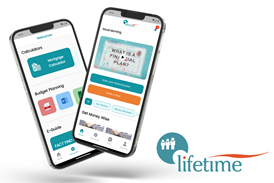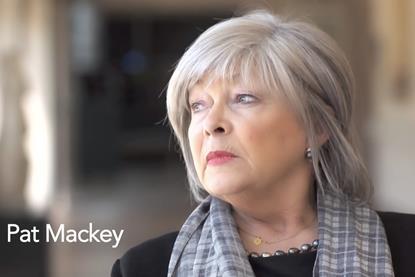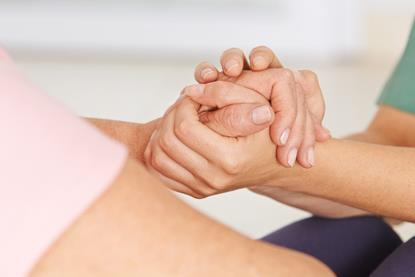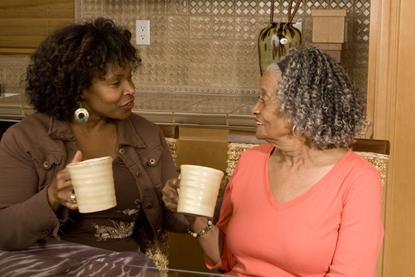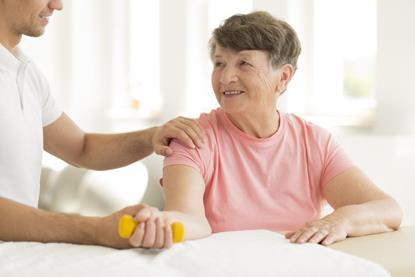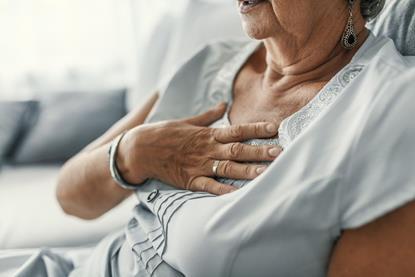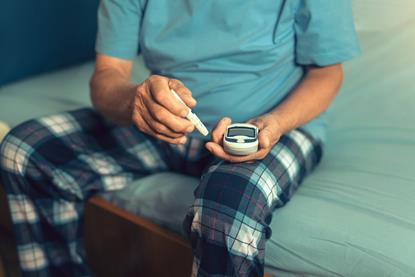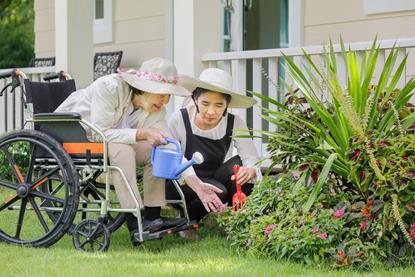Coping with an illness
Dealing with an illness can be challenging. There is often uncertainty surrounding the illness itself, with the future looking unclear and the worry of the impact on family and friends. Taking charge and coping with the illness can be a daunting task. We have some resources available to help you with that challenge.
Cancer
The reality of living with terminal cancer
Pat (Patricia) Mackey was an inaugural member of North York General Hospital’s Patient and Family Advisory Council. Following her cancer reoccurrence in the winter of 2013 and while receiving care at the Freeman Centre for the Advancement of Palliative Care, she generously shared her time, candid thoughts and observations, on video, of what it is like to live with a terminal cancer diagnosis.
Caring for someone with terminal cancer
Ciaran Devane, Macmillan Cancer Support’s CEO from 2007 until 2014, talks about his experience of caring for his partner with terminal cancer. He describes the emotions he and his partner went through and the support they received from Macmillan.
Ways to support a loved one with cancer
Drawing from her own experience with cancer, Ilonka Meier shares six simple ways to support loved ones and friends with cancer.
The hidden costs of cancer and where to find help
Anthony was diagnosed with acute myeloid leukemia in June 2014. In this video, he talks not only about the money worries and financial difficulties he faced due to cancer, but also of the huge support and advice which Macmillan Cancer Support was able to give.
Dementia
How to communicate with someone with Alzheimer's
Learning how to communicate with a loved one with Alzheimer’s can be difficult and feel awkward. This is a wonderful account of how one granddaughter communicates with her grandmother who has Alzheimer’s.
Caring for a loved one with dementia
In this video Pauline speaks candidly of her own experience of living with and caring for a loved one with dementia.
Five things to know when caring for someone with dementia
Learn about the five things to avoid when caring for people with dementia.
Heart conditions
What is coronary heart disease?
It’s estimated that over seven million people in the UK have a diagnosis of coronary heart disease (CHD), with more men than women affected. Learn about the risk factors, symptoms and treatments associated with this condition.
What is heart failure?
Heart failure refers to the condition when the heart is unable to pump blood around the body as well as it should. This can lead to oxygen deprivation to the rest of the body, and abnormal back pressure developing within blood vessels of the body, causing a number of problems.
What is atrial fibrillation?
Atrial fibrillation (AF) is the most common heart rhythm disturbance in the UK, affecting around one million adults. In AF, the normal regular electrical impulses of the heart become disorganised, leading to an irregular heartbeat. Find out more about the condition.
What is a stroke?
A stroke occurs when part of the brain dies as a result of oxygen deprivation, typically due to a blockage in one of the arteries leading to the brain or one of the small vessels deep inside the brain. Learn how to spot the signs of a stroke.
Other conditions
Coping with irritable bowel syndrome
Irritable bowel syndrome (IBS) affects about one in five UK adults but embarrassment can stop people from seeking help for this very common problem. Learn why it’s important to get the right advice and support from your doctor so that you can better manage this chronic condition.
What is chronic obstructive pulmonary disease (COPD)?
Chronic obstructive pulmonary disease (COPD) is an umbrella term for a number of chronic lung diseases which include chronic bronchitis and emphysema. Learn about the symptoms of COPD and the treatments that are available.
What is diabetes?
Diabetes is a group of metabolic disorders in which a person has abnormally high blood sugar, either because their pancreas does not produce enough insulin or because these cells do not respond to the insulin that the body produces.
What is osteoarthritis?
Osteoarthritis is a long-term condition that causes joints to become painful and stiff. It’s the most common type of arthritis in the UK, affecting over 8.75 million people. Find out more about the condition.
Long term medical conditions or a terminal illness
If you require support over a longer period of time, our physical grants are available for a wide range of concerns.
Understanding sexual health
Sexual health is part of your overall health, and it’s important to look after it. Although many of us don’t feel comfortable talking about sex, it’s helpful to know when and how to access confidential services which can support your sexual wellbeing.
Caring for family and friends during times of crisis
Connection with other people is incredibly important, and evidence shows that our physical and mental health can suffer without social support. Here is some information to consider while caring for your loved ones during COVID-19.
Building your immune system while working from home
The need for a strong immune system is clear. When out of sync and unbalanced, we will struggle to fight off infection and disease. Find out how you can support your immune system with essential vitamins and minerals.
Create your personalised toolkit
Personalise your experience by telling us what interests you. Simply select from the list of subjects available.
Change your mind? You can easily update your preferences at any time. Your information is kept safe and confidential at all times.
Here are some of the subjects we cover:
- Managing stress
- Giving up smoking
- Core skills to help you at work
- CV and interview support
- Redundancy
- Loss and bereavement


